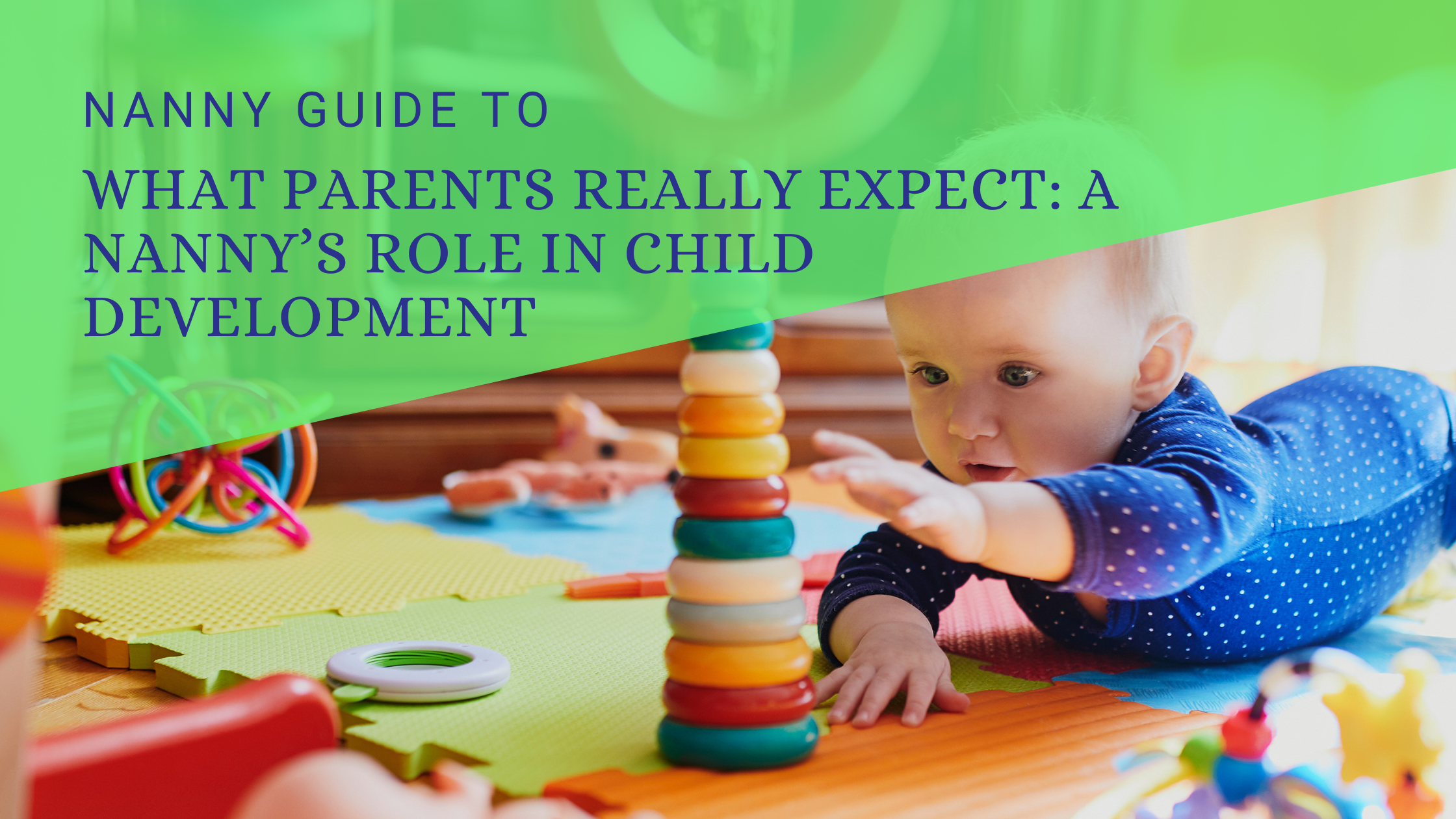Home » Nanny Resources » What Parents Really Expect: A Nanny’s Role in Supporting Child Development

Child development is a crucial aspect of any nanny’s role, and parents today are more focused than ever on ensuring their children meet developmental milestones in a holistic manner. As nannies, understanding the expectations parents have regarding their child’s growth helps bridge communication gaps and creates a nurturing environment where both children and parents thrive. With parents becoming increasingly informed, their expectations often revolve around a blend of emotional, cognitive, and physical development—making it essential for nannies to stay educated on these areas.
Supporting Cognitive Development
One of the main expectations parents have is that their nanny will support their child’s cognitive development through age-appropriate educational activities. Whether it’s reading stories, engaging in problem-solving games, or introducing numbers and letters, parents want to know that their nanny is proactively encouraging a love for learning. A nanny who can seamlessly integrate fun learning opportunities into daily routines will not only meet but exceed these expectations.
Fostering Emotional Growth
Emotional development is another critical area that parents look to nannies to support. Children thrive when their emotional needs are recognized and nurtured, and parents expect nannies to foster empathy, patience, and effective communication. By modeling emotional intelligence and helping children navigate their feelings, nannies can significantly contribute to raising well-adjusted children.
Promoting Physical Milestones
Physical development, while sometimes more straightforward, is equally important. Parents expect their nanny to encourage activities that promote gross and fine motor skills, such as running, climbing, drawing, and crafting. The goal is to ensure that their child is not only meeting physical milestones but also staying active in a healthy, structured way.
Key Takeaways
- Parents expect nannies to actively support cognitive development through engaging, educational activities like reading and problem-solving. This helps create a strong foundation for a lifelong love of learning.
- Emotional growth is a high priority for parents, with a focus on teaching children empathy and emotional regulation. Nannies play a key role by modeling emotional intelligence and providing a supportive environment.
- Physical development is vital, and parents want nannies to encourage both fine and gross motor skills through structured play. Active participation in physical activities helps children meet important developmental milestones.
Ready to find your perfect job?
We conduct a custom search for your family. Start your search today by filling out the family application.

